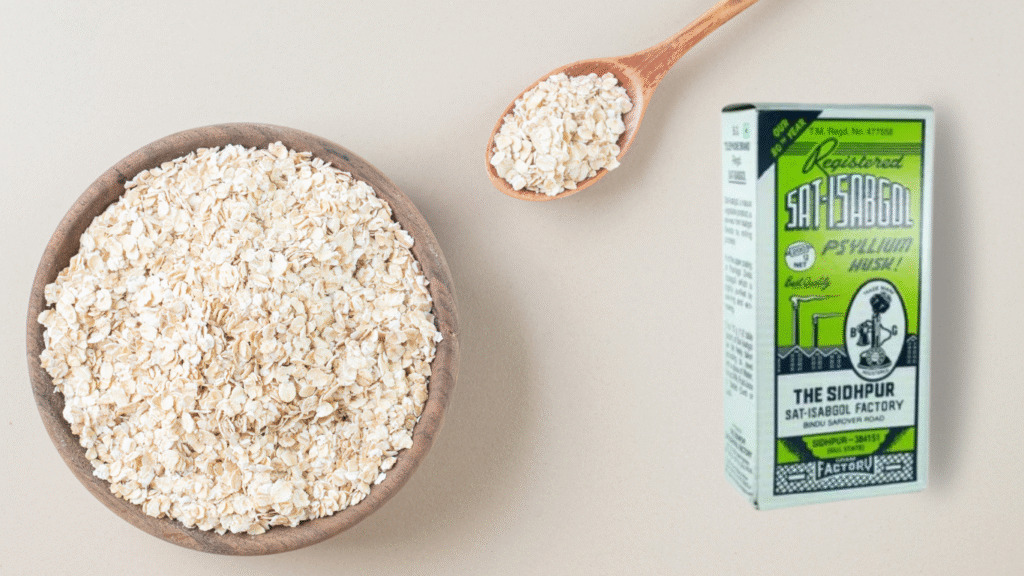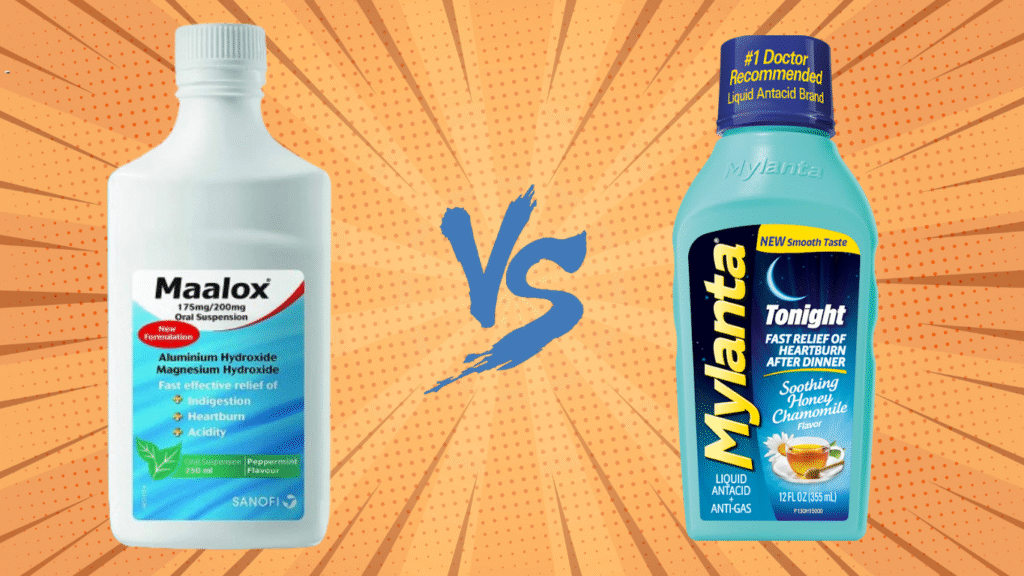If you are suffering from indigestion, heartburn, acid reflux, and gas then you are looking for a option that provide relief from these problems. For the solution of these problems in market a popular Over-the-counter Antacid is available which is Mylanta, while the use of this antacid is safe, when it use as per directed. It can cause some side effects in some individual. It is important to know about these potential side effects.
So in this article we will explore about:
- What Mylanta is and how it works
- Common and rare side effects
- Who should avoid Mylanta
- Drug interactions
Frequently asked questions
What is Mylanta?
Mylanta is a liquid antacid in which contains
- Aluminum hydroxide: Its work to neutralize stomach acid
- Magnesium hydroxide: It also helps in neutralizing acid and helps in providing relief from constipation.
- Simethicone: This helps in reducing gas and boating
Mylanta is mainly used to treat:
- Heartburn
- Acid indigestion
- Sour stomach
- Bloating and gas
Common Side Effects of Mylanta
Mylanta is well tolerated for most of the people, but some of the people may experience mild side effects, especially due to high dose, or taking in wrong manner. Common Side effects are
Constipation
- It is mainly caused by the aluminum component in Mylanta
- Also caused by long-term use.
Diarrhea
- It is caused due to magnesium hydroxide
- In most of people it usually mild and treat by itself
Nausea or Stomach Cramps
- This Side effect may be occur due to higher dose or in sensitive stomach
Chalky Taste
- Typical of many liquid antacids
Gas or Bloating
- This is rare, but occur when simethicone is not effective
Rare but serious Side Effects
Serious side effects are rare but they may occur, especially in the people who have already some health issues or In the people who misuse Mylanta, these are:
1. Electrolyte Imbalance
- Long term use of Mylanta may disturb level of magnesium, calcium or phosphate
2. Kidney Problems
- Aluminum and magnesium can accumulate in people with kidney disease
3. Allergic Reactions
- Rash, Itching, Dizziness, or swelling (especially on the face/tongue/throat)
4. Aluminum Toxicity
- Especially in the people who have chronic kidney disease or by using Mylanta for long time.
Who Should Avoid Mylanta?
People who have:
- Kidney Disease
- Low-phosphate diet
- Pregnancy or breastfeeding women
- Chronic diarrhea or constipation
- History of electrolyte imbalance
If you these problem then consult your doctor before using Mylanta
Drug Interactions
Mylanta can be interfere with other medication absorption, including:
- Antibiotics
- Thyroid Medication
- Iron Supplements
- Digoxin
Tip: Always take Mylanta with a gap of 2 hour before and after with these medications
How to Use Mylanta Safely
- Always follow dose instructions
- Shake well before use if you are using liquid form
- Do not take Mylanta for more than 2 week without medical advise
- Stay hydrated by drinking water frequent, especially if you are experiencing diarrhea
FAQs
Is Mylanta safe for children?
Mylanta is not recommended for children who is under 12, As per pediatrician advise it can take
Can I use Mylanta during pregnancy?
It can be taken during pregnancy but doctor consultation or medical supervision is required
Can Mylanta cause constipation or diarrhea?
Yes, Due to presence of aluminum it can cause constipation or Due to presence of magnesium it can cause diarrhea. It depend on individual
What should I do if I overdose on Mylanta?
As soon as possible contact your doctor or seek medical attention
Can I take Mylanta every day?
For Short time period is fine, but for long term use doctor supervision is required
Can I take Mylanta with other antacids or acid reducers (like omeprazole)?
Best is not take antacid together unless your doctor advised you to do so.
Final Thoughts
Mylanta is a popular and trusted solution, known for fast relief from acid indigestion and gas. Always use Mylanta as directed to minimize side effects.







